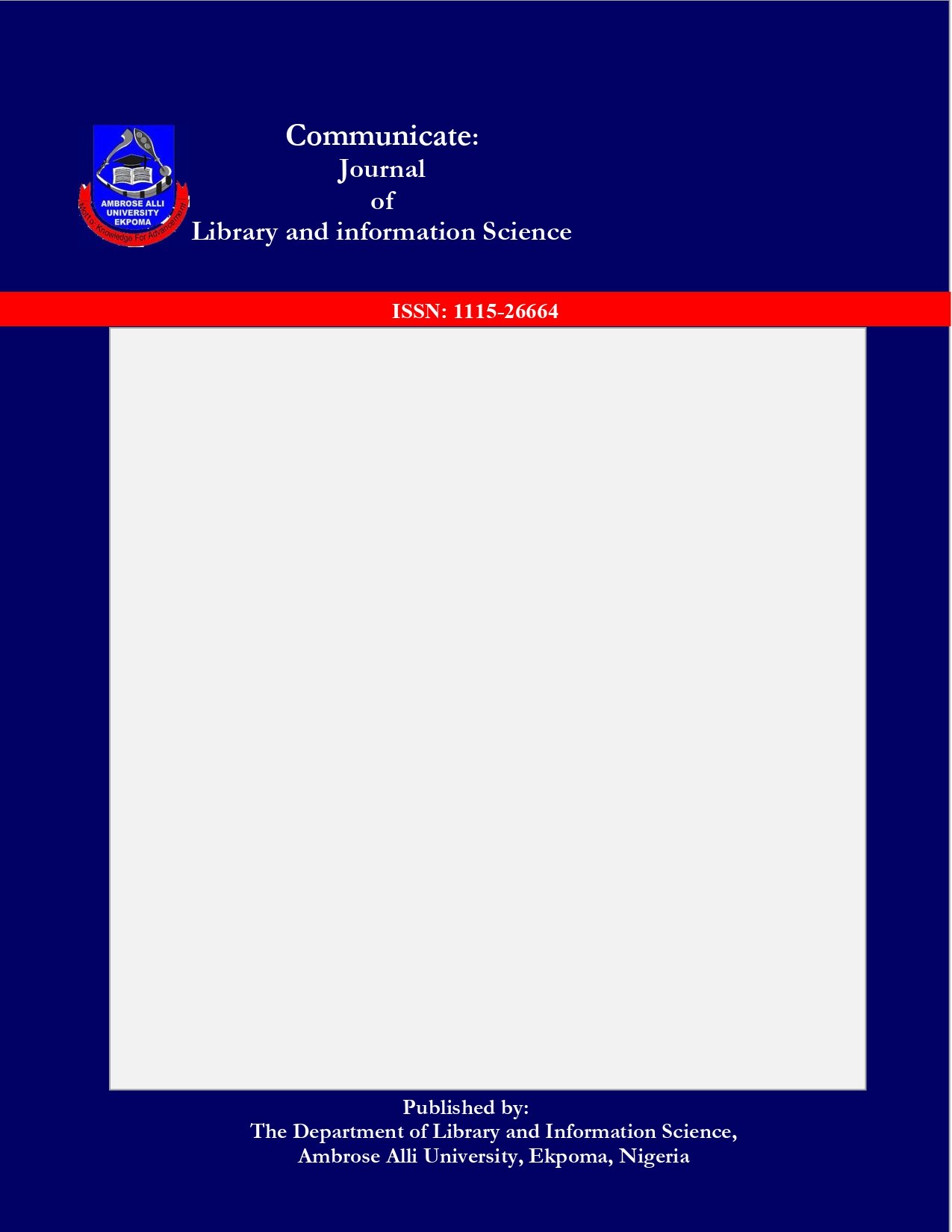An analysis of library access and utilization by students with special needs at the University of Calabar, Cross River State
Main Article Content
Abstract
This study assesses library utilization among students with special needs at the University of Calabar, using a survey research design. The population consisted of 80 students with disabilities (42 male and 38 female). Due to the small and homogenous population size, the entire group was surveyed. Data were collected via questionnaires, focusing on library usage patterns, challenges faced, and the adequacy of existing services. Responses were analyzed using percentages to determine the frequency and distribution of responses, offering a quantitative evaluation of accessibility and utilization. The study found that 85% of students had access to assistive technologies such as screen readers and Braille displays, while 90% reported the availability of support services and trained staff. However, 42.5% of students lacked training in the use of assistive technologies, highlighting a significant gap in resource utilization. Recommendations include improving assistive technology training, website usability, and expanding information literacy programs to enhance support for students with special needs.
Article Details

This work is licensed under a Creative Commons Attribution-NonCommercial-NoDerivatives 4.0 International License.

